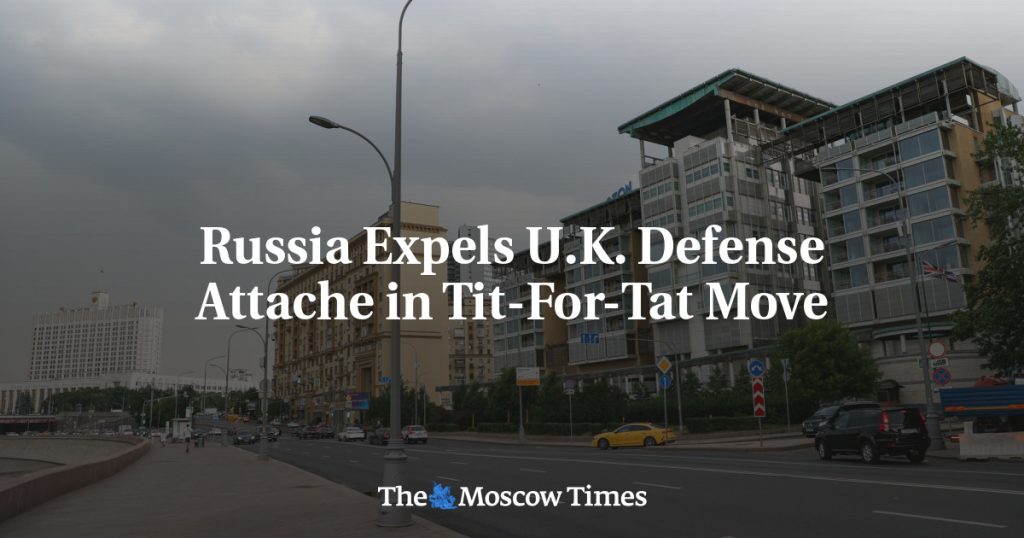Russia retaliated against the United Kingdom by ordering the expulsion of the U.K.’s defense attache in Moscow, following London’s decision to expel Russia’s defense attache last week. The U.K. had accused Moscow’s defense attache of being an undeclared military intelligence officer, a claim that Russia denies. In response, Russia declared the U.K.’s defense attache persona non grata, giving him a week to leave the country. The Russian Ministry of Defense warned of potential further measures in response to what they called an unfriendly, anti-Russian, and politically motivated decision by the U.K.
Tensions between Russia and the U.K. remain high, with the U.K. being a staunch NATO supporter of Ukraine and providing significant military support to Kyiv’s troops. Russia’s defense attache in the U.K., Maxim Elovik, has been in the country since at least 2014 and has been seen at ceremonies honoring Russian war dead. The U.K. made the decision to expel the Russian defense attache amidst concerns of malign Russian activity on British soil, including an arson attack on a Ukrainian-linked business that was allegedly orchestrated by the Kremlin. This incident has further strained the already tense relations between the two countries.
The situation highlights the ongoing geopolitical tensions between Russia and Western countries, particularly those aligned with NATO. The expulsion of defense attaches from both countries is just one manifestation of the broader confrontation between Russia and the West. The U.K.’s accusations against Moscow’s defense attache as an undeclared military intelligence officer reflect the suspicion and distrust that characterize the relationship between the two nations. Russia’s retaliatory expulsion of the U.K.’s defense attache is a direct response to what they view as an unwarranted and hostile action by the U.K.
The current state of affairs underscores the challenges facing diplomacy and international relations in a complex and interconnected world. The tit-for-tat expulsions of defense attaches demonstrate the fragility of diplomatic ties between countries and the potential for escalation in response to perceived provocations. As Russia and the U.K. engage in this diplomatic dispute, it remains to be seen how the situation will evolve and whether it will have broader implications for regional and global security. The ongoing tensions between Russia and Western countries highlight the ongoing struggles for power and influence in the international arena.
The need for independent journalism and accurate reporting on sensitive international issues is crucial in times of heightened geopolitical tensions. The role of media outlets like The Moscow Times in providing unbiased and reliable information becomes even more critical amidst attempts to suppress freedom of expression and manipulate public narratives. The Moscow Times’ appeal for support to continue its mission of reporting on Russia without political interference underscores the importance of a free and independent press in holding governments and institutions accountable. Supporting open and transparent journalism is vital in promoting a more informed and democratic society.


